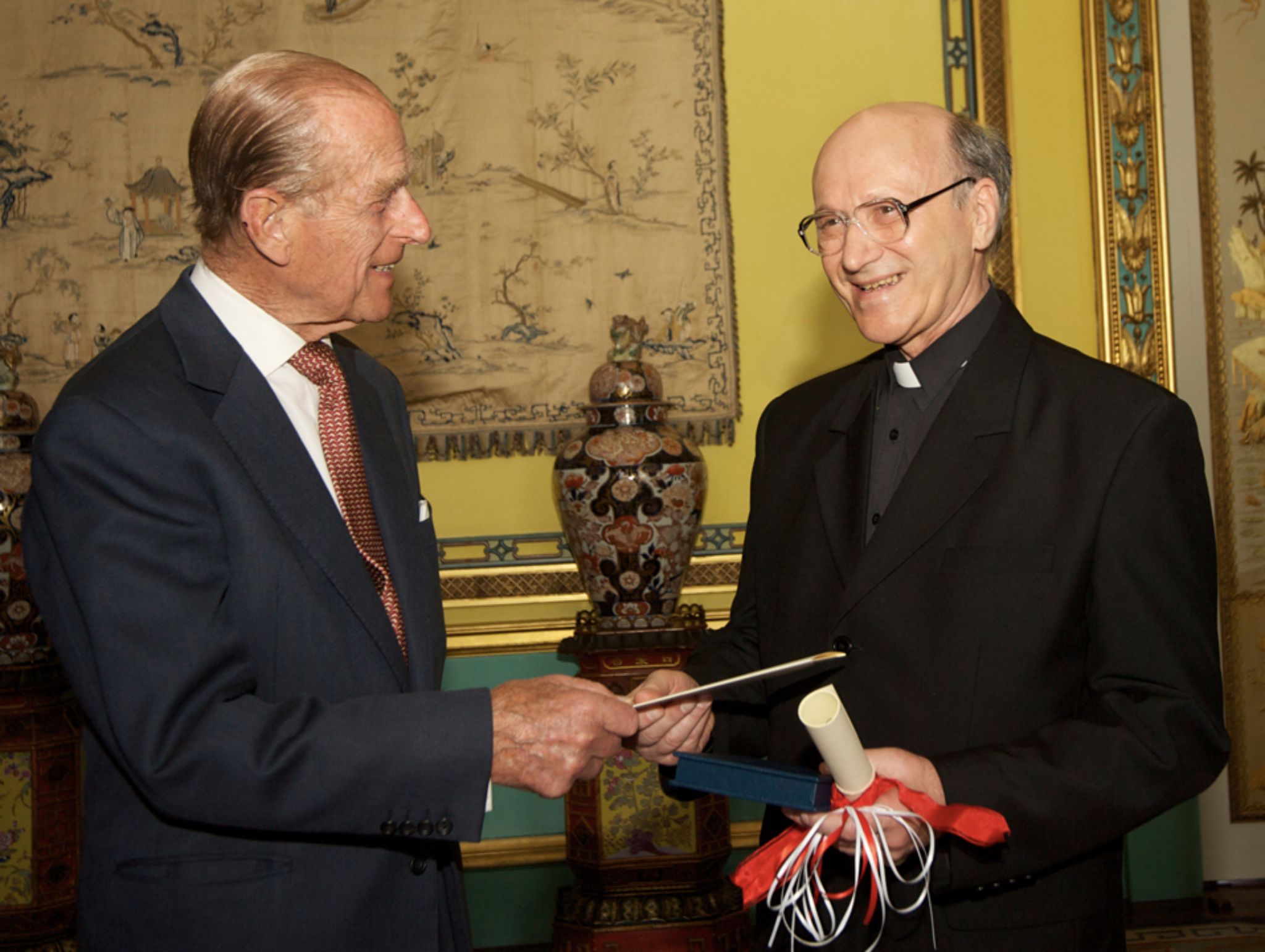In 1973, the first Templeton Prize was given to Mother Teresa. In 2023, we celebrate the 50th anniversary of this award. Over the next 52 weeks, we will highlight each of our laureates and reflect on their impact on the world. From humanitarians and saints to philosophers, theoretical physicists, and one king, the Templeton Prize has honored extraordinary people. Together, they have pushed the boundaries of our understanding of the deepest questions of the universe and humankind’s place and purpose within it, making this (we humbly think) the world’s most interesting prize.
Michał Heller is a Polish cosmologist and Catholic priest who has developed sharply focused and strikingly original concepts on the origin and cause of the universe. Born in Tarnów, Poland, on March 12, 1936, his early life was shaped by the turbulent political forces of World War II.By the time he was ten years old, his family had uprooted from Poland to the present day Ukraine, to Siberia, to southern Russia, and back to Poland. Raised in a deeply religious family, Heller’s spiritual upbringing significantly influenced his life’s journey.
Heller became fascinated by physics, mathematics, and religion from a young age. At 17, he entered the seminary in Tarnów and was ordained a priest at age 23. He earned a master of theology degree in 1959, a master of philosophy in 1965 with a thesis on the philosophical aspects of relativity theory, and a Ph.D. in philosophy with a thesis in relativistic cosmology in 1966, all from the Catholic University of Lublin in Poland
Heller established himself as a pre-eminent figure among cosmologists and physicists through his prolific writings – he has more than 30 books and nearly 400 papers to his credit – on topics such as the unification of general relativity and quantum mechanics, multiverse theories and their limitations, geometric methods in relativistic physics such as noncommutative geometry, and the philosophy and history of science.
Heller’s work not only expanded the horizons of cosmology but also encouraged deep reflection on the fundamental questions of existence, such as “Does the universe need to have a cause?”
In recognition of his outstanding contributions to the dialogue between science and spirituality, Michał Heller was awarded the prestigious Templeton Prize in 2008.
-

Michał Heller, 2008 Templeton Prize laureate with HRH Prince Philip, Duke of Edinburgh
The Prize was awarded to Michał Heller by His Royal Highness Prince Philip, the Duke of Edinburgh, in a private ceremony at Buckingham Palace. In a press conference announcing the 2008 Templeton Prize laureate, Dr. John Templeton, Jr. remarked:
“What differentiates Professor Heller from others in the field of science and religion is the critical assurance and great authority he brings to the evaluation of the most topical and influential scientific and philosophical positions. His enormous list of publications represents a brilliant combination of accessibility and sophistication. His critique of ontological naturalism and mechanistic reductionism discloses the importance of his philosophical contribution. His understanding of God Imminent in the Laws of Nature, but also transcendent towards nature, is both original and well-grounded.”
— Dr. John Templeton, Jr.





